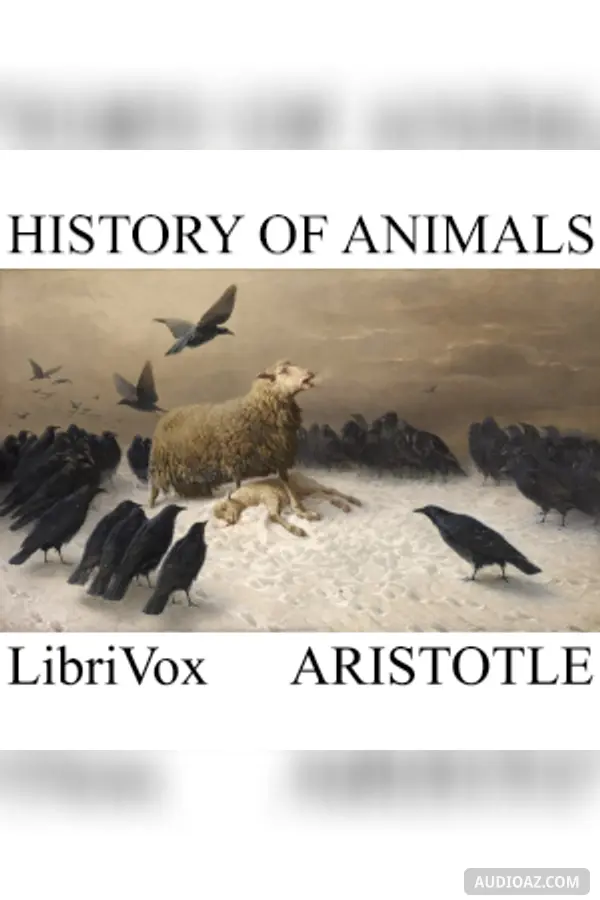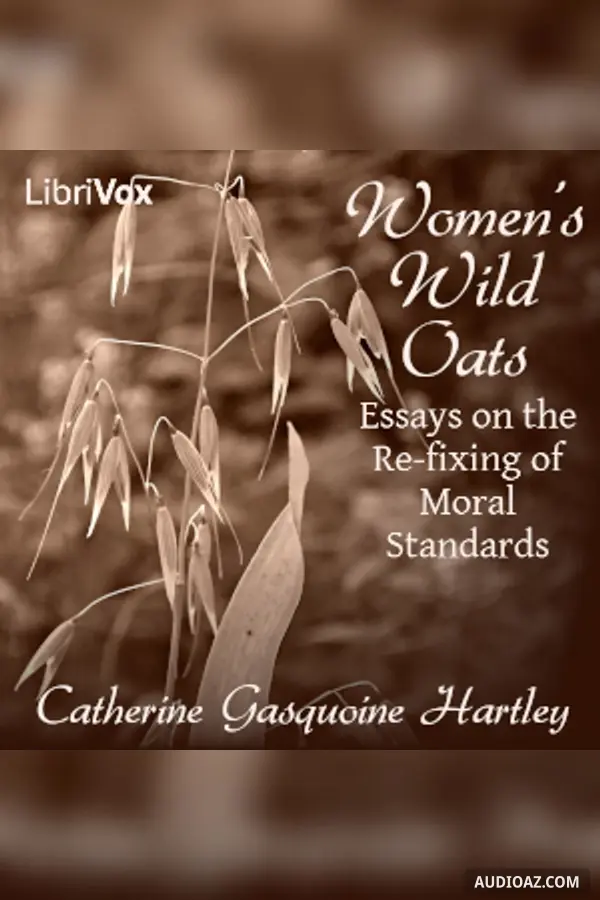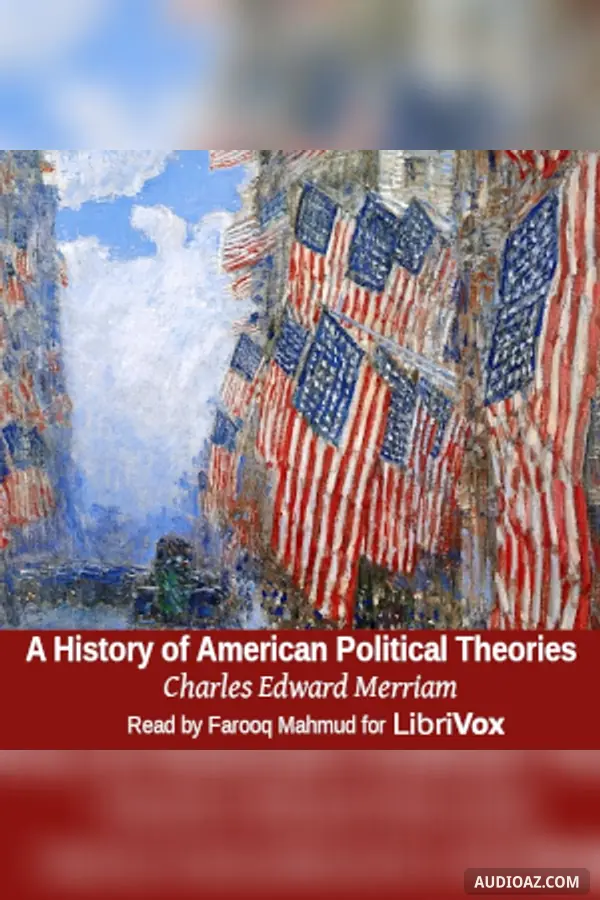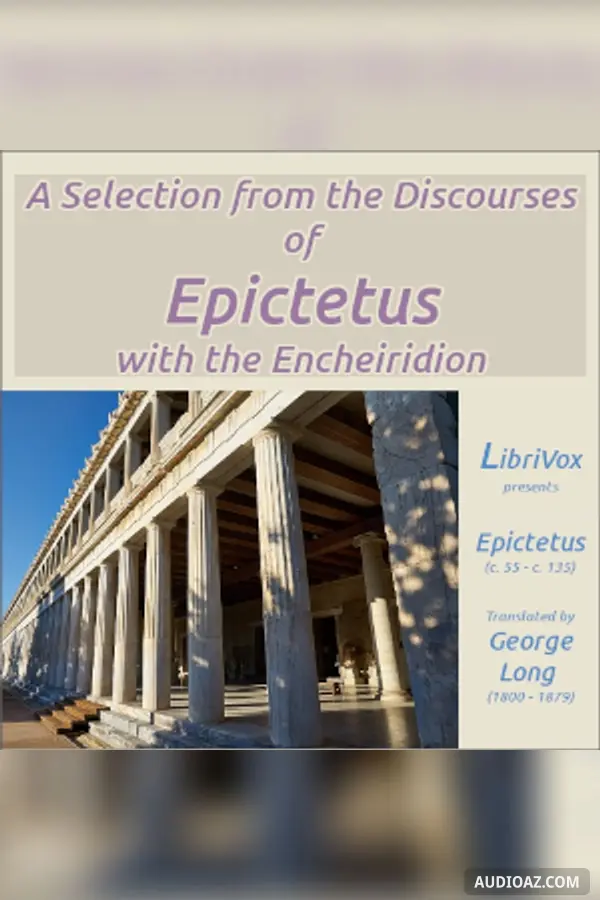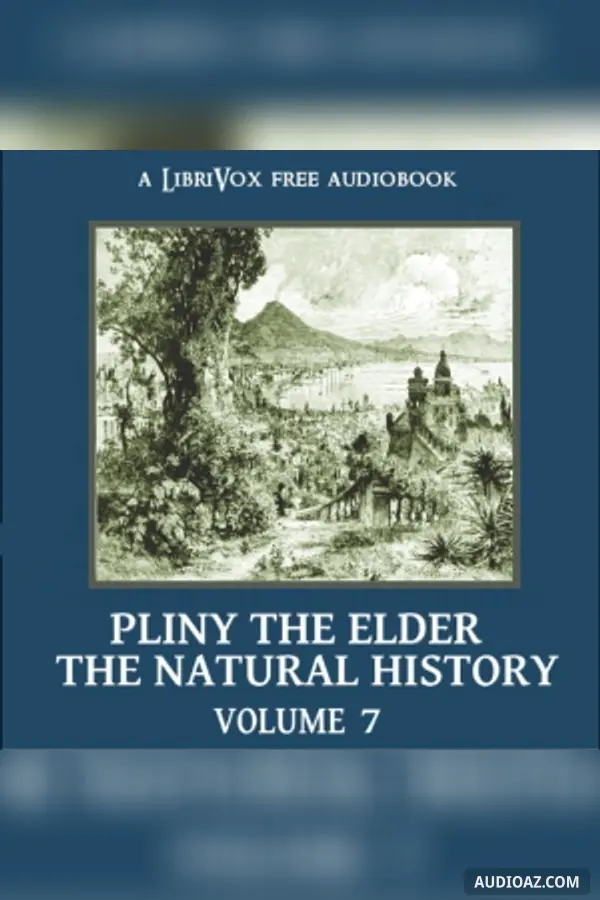
The Natural History Volume 7 - Audiolibro Gratis
Autor(es): Pliny the Elder
Idioma: English
Género(s): Clásicos (Antigüedad griega y latina)NaturalezaNo ficción
1 / 39Book 31, Chapters 1 to 15. Remarkable facts connected with water. The different properties of water. Remedies derived from water. Curative waters. Salt and bitter waters.
- 1. Book 31, Chapters 1 to 15. Remarkable facts connected with water. The different properties of water. Remedies derived from water. Curative waters. Salt and bitter waters.
- 2. Book 31, Chapters 16 to 32. Marvellous facts connected with water. Method of searching for water. The method of conveying water.
- 3. Book 31, Chapters 33 to 42. The uses of sea-water. Thalassomeli and hydromeli. Various kinds of salt. Properties of salt. Flower of salt.
- 4. Book 31, Chapters 43 to 47. Garum. Alex. The nature of salt. Nitrum. Sponges. Summary. Roman Authors Quoted. Foreign Authors Quoted.
- 5. Book 32, Chapters 1 to 12. Remedies from aquatic animals. The torpedo. The sea-hare. Properties of fishes. Corals. Pastinaca. Galeos. Sur-mullet.
- 6. Book 32, Chapters 13 to 22. Remedies from amphibious animals. Remedies for poisons and stings. Remedies from frogs, crabs, oysters and sea-weed.
- 7. Book 32, Chapters 23 to 32. Remedies for alopecy, diseases of the eyes and ears, tooth-ache, spots on the face, scrofula, coughs and diseases of the chest, pains in the liver and sides, diseases of the bowels, spleen and bladder.
- 8. Book 32, Chapters 33 to 47. Remedies for the intestines, the generative organs, remedies for the gout, epilepsy, lethargy, burns, diseases of the sinews, ulcers, warts. Depilatories.
- 9. Book 32, Chapters 48 to 54. Remedies for diseases of infants. Preventing intoxication. Aphrodisiacs. Other aquatic productions. Names of fishes. Summary, Roman authors quoted. Foreign authors quoted.
- 10. Book 33, Chapters 1 to 6. Metals. Gold. The origin of gold rings.The right of wearing gold rings.
- 11. Book 33, Chapters 7 to 12. The decuries of the judges. The equestrian order. Gifts of gold and silver. Crowns of gold. Uses made of gold by females.
- 12. Book 33, Chapters 13 to 21. Coins of gold, silver and copper. Man's cupidity for gold. Gilding. How gold is found.
- 13. Book 33, Chapters 22 to 35. Orpimentum. Electrum. Statues of gold. Chrysocolla. Silver. Quicksilver. Stimmi, alabastrum, larbasus, scoria of silver.
- 14. Book 33, Chapters 36 to 46. Minium. Cinnabaris. Gilding with silver. Testing silver and gold. MIrrors. Egyptian silver.
- 15. Book 33, Chapters 47 to 58. Immense wealth. Voluntary contributions. Luxury and frugality. Silver plates. Statues of silver. Caeruleum. Summary, Roman authors quoted. Foreign authors quoted.
- 16. Book 34, Chapters 1 to 8. Brass, copper.
- 17. Book 34, Chapters 9 to 18. Statues. Prices of statues. Colossal statues.
- 18. Book 34, Chapter 19. Most celebrated works in brass and their artists.
- 19. Book 34, Chapters 20 to 38. Copper. Medicinal properties of metals.
- 20. Book 34, Chapters 39 to 46. Iron. Ores. Live iron. Methods of preventing rust.
- 21. Book 34, Chapters 47 to 56. Lead. Molybdaena. Psimithium. Sandarach. Arrhenicum. Summary, Roman authors quoted. Foreign authors quoted.
- 22. Book 35, Chapters 1 to 10. Painting, portraits, monochrome paintings, earliest paintings, Roman paintings, foreign paintings
- 23. Book 35, Chapters 11 to 35. The art of painting, pigments, artificial colours, colours on wet coating, age of painting, contests of painting
- 24. Book 35, Chapter 36. Artists who painted with the pencil
- 25. Book 35, Chapters 37 to 42. Other kinds of painting. Encaustic painting. Colouring of tissues.
- 26. Book 35, Chapters 43 to 49. The art of modelling. Pottery. Brick walls.
- 27. Book 35, Chapters 50 to 59. Sulphur, Bitumen, Alumen, earths and their medicinal purposes. Summary, Roman authors quoted, foreign authors quoted.
- 28. Book 36, Chapters 1 to 4. Marble. Marble in public buildings. Marble columns. Sculptors in marble.
- 29. Book 36, Chapters 5 to 13. Marble slabs. The use of marble in Rome. Onyx and alabastrites. Lygdinus. Corallitic stones.
- 30. Book 36, Chapters 14 to 20. Obelisks. Works in Egypt. Pyramids. The Sphynx. The Pharos. Hanging Gardens.
- 31. Book 36, Chapters 21 to 24. The Temple of Diana. Other temples. The fugitive stone. Marvellous buildings at Rome.
- 32. Book 36, Chapters 25 to 46. Magnets. Various kinds of stones and their medicinal uses.
- 33. Book 36, Chapters 47 to 70. Various kinds of silex. Stones used for buildings. Methods of building. Cisterns. Various kinds of sand. Plaster for walls. Columns. Gypsum. Pavements. Mosaic pavaments. Origins of glass. Kinds of glass. Obsidian glass. Summary. Roman authors quoted, Foreign authors quoted.
- 34. Book 37, Chapters 1 to 10. Jewels. Murrhine vessels. Crystals.
- 35. Book 37, Chapters 11 to 18. Amber. Precious stones. Smaragdus.
- 36. Book 37, Chapters 19 to 30. Tanos, beryls, opals, sardonyx, onyx, carbuncles, sandastros, lychnis, carchedonia.
- 37. Book 37, Chapters 31 to 50. Sarda, topazos, sapphiros, amethystos, chrysolitos, chryselectrum, asteria, astrobolos.
- 38. Book 37, Chapters 51 to 62. Several varieties of precious stones.
- 39. Book 37, Chapters 63 to 77. Several varieties of precious stones. The methods of testing precious stones. A comparative view of Nature as she appears in different countries. The comparative values of things. Summary. Roman authors quoted, Foreign authors quoted.
Acerca de
Naturalis Historia (Latin for "Natural History") is an encyclopedia published circa AD 77-79 by Pliny the Elder. It is one of the largest single works to have survived from the Roman empire to the modern day and purports to cover the entire field of ancient knowledge, based on the best authorities available to Pliny. The work became a model for all later encyclopedias in terms of the breadth of subject matter examined, the need to reference original authors, and a comprehensive index list of the contents. The scheme of his great work is vast and comprehensive, being nothing short of an encyclopedia of learning and of art so far as they are connected with nature or draw their materials from nature. The work divides neatly into the organic world of plants and animals, and the realm of inorganic matter, although there are frequent digressions in each section. He is especially interested in not just describing the occurrence of plants, animals and insects, but also their exploitation (or abuse) by man, especially Romans. The description of metals and minerals is particularly detailed, and valuable for the history of science as being the most extensive compilation still available from the ancient world. This seventh and last volume includes books thirty one to thirty seven, covering the following subjects: Book 31 - The remedies derived from the aquatic productions Book 32 - Remedies derived from the aquatic animals Books 33 and 34 - The natural history of metals Book 35 - An account of paintings and colours Book 36 - The natural history of stones Book 37 - The natural history of precious stones. - Summary by Leni
Comentarios
Sé el primero en comentar
Aún no hay comentarios sobre este contenido. ¡Inicia la conversación!
Descubrir Más
Etiquetas: The Natural History Volume 7 audio, The Natural History Volume 7 - Pliny the Elder audio, Clásicos (Antigüedad griega y latina) audio, Naturaleza audio, No ficción audio, free audiobook, free audio book, audioaz


